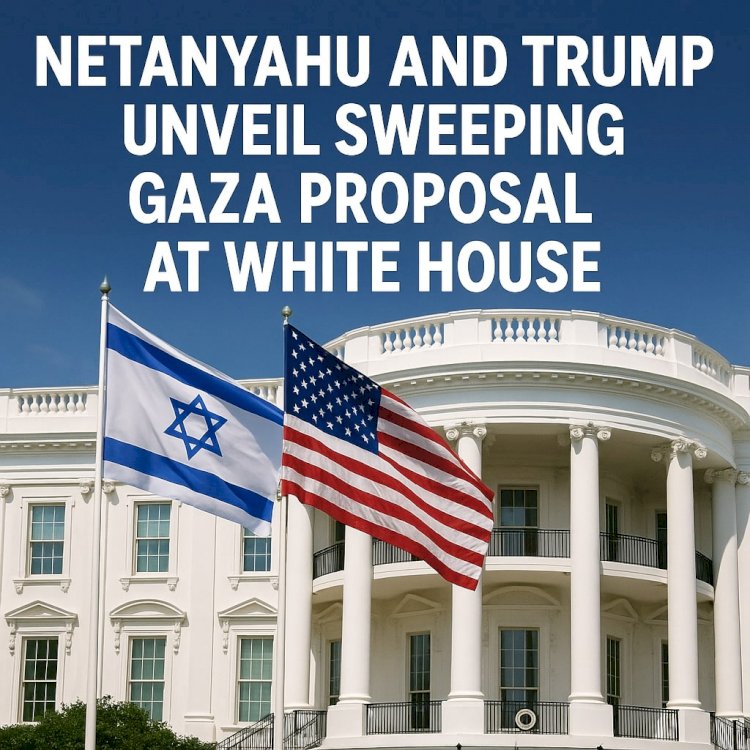Netanyahu and Trump Unveil Sweeping Gaza Proposal at White House

Washington, D.C. — Prime Minister Benjamin Netanyahu’s visit to the White House on September 29, 2025, produced one of the most ambitious diplomatic announcements of the year. Standing beside U.S. President Donald Trump, the Israeli leader endorsed a wide-ranging initiative aimed at halting the devastating Gaza war and charting a new course for the region.
A Bold Framework for Gaza
The centerpiece of the press conference was a 20-point plan designed to address the ongoing crisis. The framework includes an immediate ceasefire, the release of hostages, a program for demilitarization, and the creation of a transitional governing authority for Gaza.
Oversight of this process would fall to an international “Board of Peace,” with Trump positioning himself at the forefront of the body. Reconstruction of Gaza, badly damaged after nearly two years of conflict, would begin under this supervision. Hamas, however, was given a 72-hour ultimatum to free hostages in exchange for Palestinian prisoners held in Israel. Netanyahu warned that failure to comply would lead to unilateral Israeli action.
Netanyahu’s Outreach to Qatar
In an unusual diplomatic gesture, Netanyahu also expressed regret to Qatar’s leadership following an Israeli strike in Doha. The apology, made during a phone call brokered by Trump, marked an acknowledgment of the incident as a breach of sovereignty and a promise to avoid repetition.
The U.S. Position
Trump underscored that the United States would play a direct role in Gaza’s postwar transition, but he also drew a firm line by opposing any move by Israel to annex the West Bank. This dual stance highlighted Washington’s desire to both shape the region’s future and limit escalation.
Ceasefire Proposal and Humanitarian Urgency
Netanyahu further revealed that Israel and the United States are drafting a 21-point ceasefire agreement, intended to gradually reduce hostilities and permit Hamas fighters to exit Gaza under specified conditions.
International concern over the humanitarian disaster remains acute. With tens of thousands reported dead and widespread destruction across Gaza, aid groups and foreign governments are pressing for an end to the bloodshed and for large-scale relief efforts to begin.
Mixed Reactions
The proposal drew immediate skepticism from Hamas, which dismissed the demands for disarmament. Some Arab and Muslim-majority nations cautiously welcomed the plan but stressed that any sustainable peace must include a pathway toward a two-state solution. Within Israel, Netanyahu faces resistance from his right-wing coalition partners, who oppose concessions that could be interpreted as granting Palestinians greater autonomy.
Meanwhile, the legal dimension remains unresolved, with Netanyahu still facing an International Criminal Court warrant that complicates his standing on the global stage.
What Comes Next
The joint announcement represents a high-profile gamble for both leaders. For Trump, it is an opportunity to present himself as a global dealmaker. For Netanyahu, it is a chance to shift momentum in a war that has increasingly drawn international condemnation.
Whether the plan succeeds depends largely on Hamas’s response, the commitment of international partners, and the delicate balancing act within Israel’s domestic politics. The coming days may determine if this proposal ushers in a historic turn toward peace — or sets the stage for further confrontation.

 content-team
content-team 


















